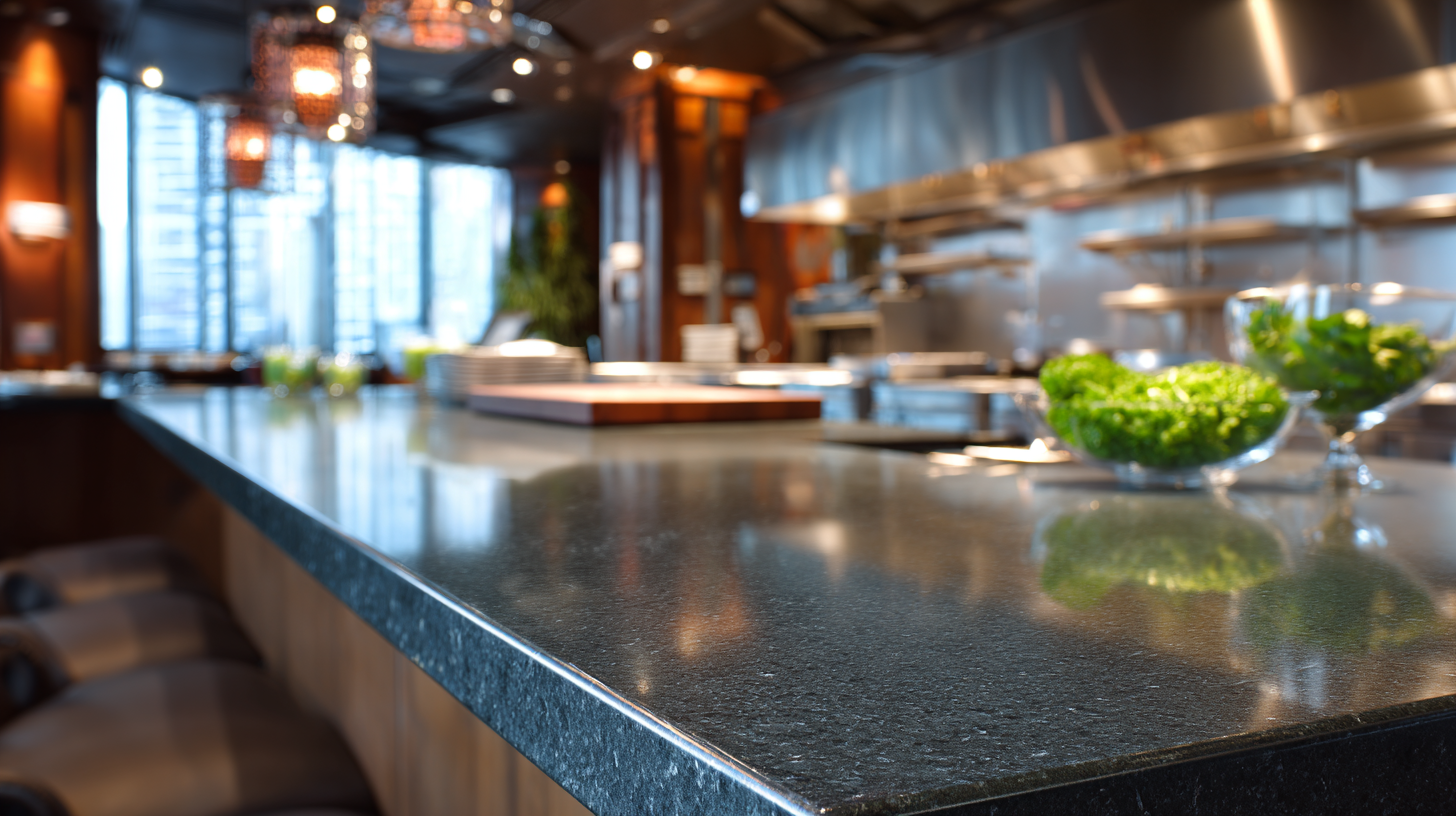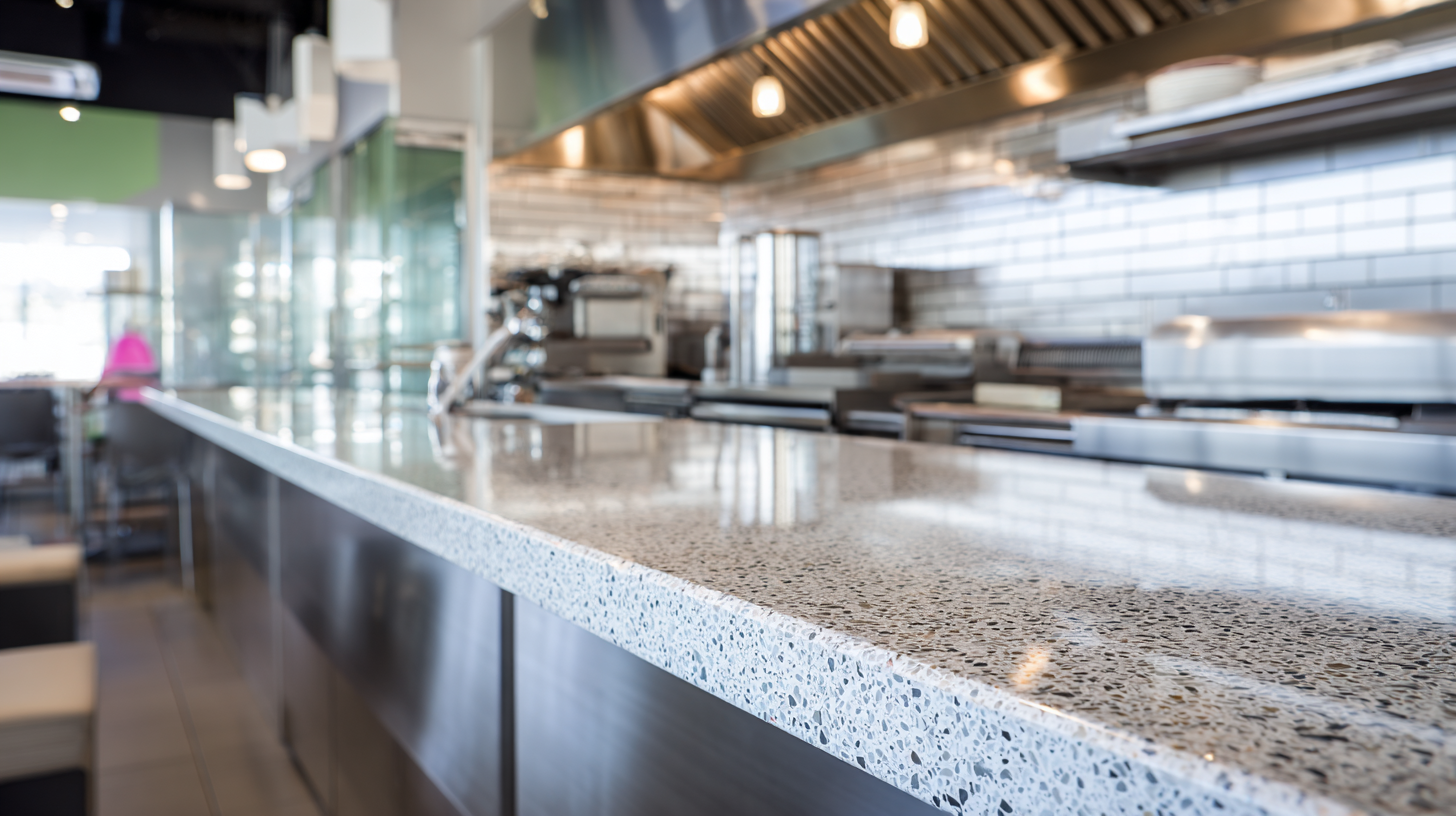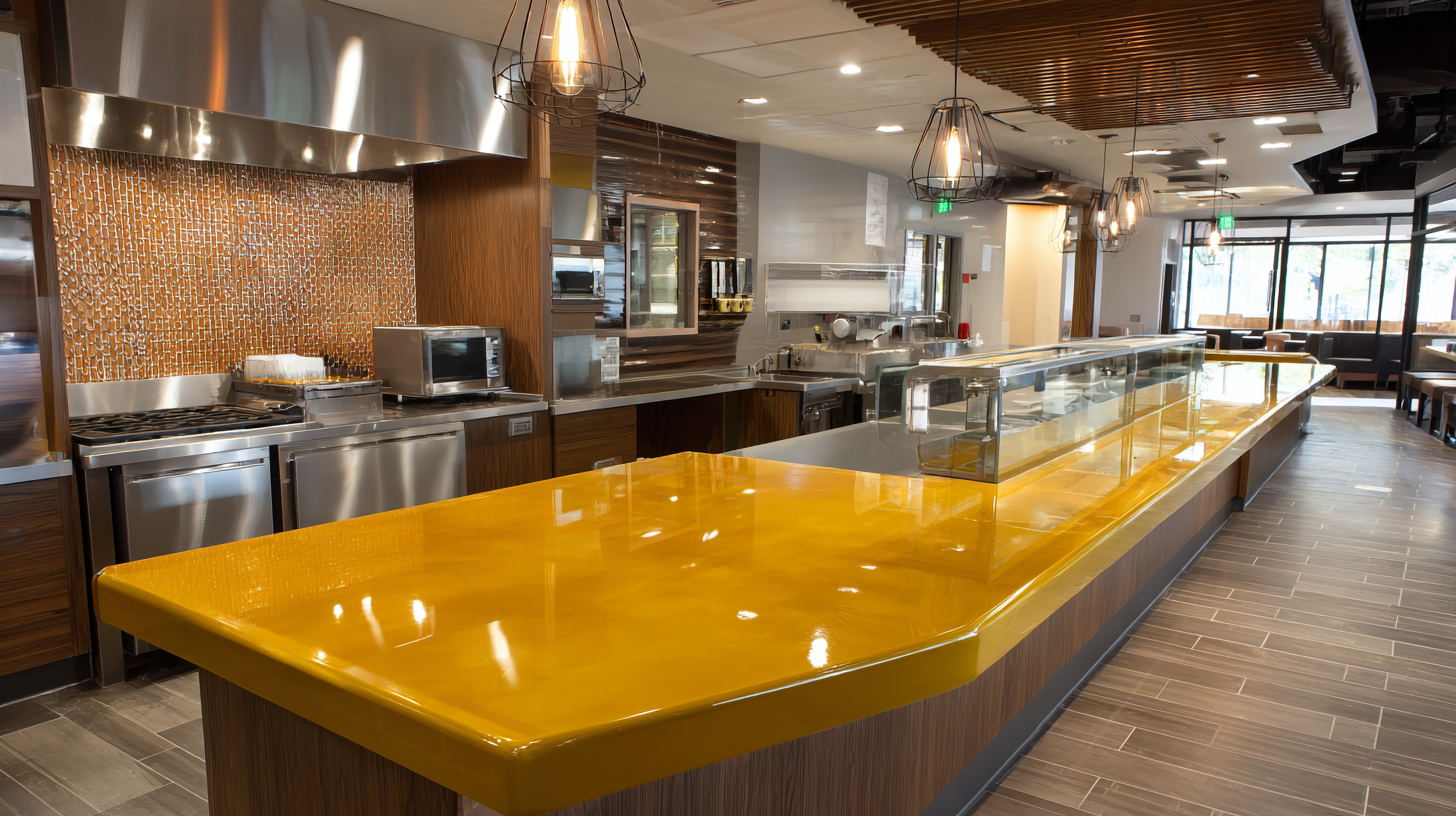Blog
Exploring the Benefits of Using Commercial Countertops in Foodservice Operations
In the fast-paced environment of foodservice operations, the choice of materials plays a crucial role in determining efficiency, hygiene, and overall performance. One significant component that often goes overlooked is the commercial countertop. Commercial countertops are specially designed surfaces that cater to the rigorous demands of food preparation and service. Unlike standard countertops, these surfaces are engineered to withstand high traffic, resist stains, and facilitate easy cleaning, making them indispensable in commercial kitchens. The benefits of using commercial countertops extend beyond durability; they also contribute to enhanced food safety, improved workflow, and aesthetic value within dining establishments. As foodservice operators strive to meet health codes and customer expectations, understanding the advantages and applications of commercial countertops becomes essential for optimizing operations and ensuring success in a competitive market.

Advantages of Commercial Countertops for Food Safety and Sanitation
 Commercial countertops play a crucial role in foodservice operations, significantly enhancing food safety and sanitation. One of the primary advantages of these surfaces is their non-porous nature, which prevents the absorption of liquids and bacteria. Materials like stainless steel, quartz, and solid surface composites are designed to withstand rigorous cleaning and sanitizing routines, ensuring that harmful pathogens are eliminated effectively. This characteristic minimizes the risk of cross-contamination, a key factor in adhering to health regulations and maintaining a safe food preparation environment.
Commercial countertops play a crucial role in foodservice operations, significantly enhancing food safety and sanitation. One of the primary advantages of these surfaces is their non-porous nature, which prevents the absorption of liquids and bacteria. Materials like stainless steel, quartz, and solid surface composites are designed to withstand rigorous cleaning and sanitizing routines, ensuring that harmful pathogens are eliminated effectively. This characteristic minimizes the risk of cross-contamination, a key factor in adhering to health regulations and maintaining a safe food preparation environment.
Additionally, commercial countertops are engineered to be durable and resistant to scratches, stains, and heat, further supporting cleanliness in foodservice areas. Their longevity means less frequent replacements, reducing waste and long-term costs. The seamless design of many commercial countertops eliminates crevices where dirt and bacteria can hide, facilitating thorough cleaning. Overall, the use of commercial countertops not only meets stringent hygiene standards but also contributes to a safer workspace for staff, helping to promote overall food safety in busy kitchen environments.
Choosing the Right Materials: A Guide to Foodservice Countertops
When selecting countertops for foodservice operations, it's crucial to consider the material's properties to ensure safety, durability, and ease of maintenance. Common choices include stainless steel, which is favored for its hygienic qualities and resistance to staining and corrosion. It can withstand high temperatures and is easy to clean, making it ideal for busy kitchens that require both functionality and aesthetic appeal.

Another popular option is laminate, which offers versatility in design and color while being relatively cost-effective. It is suitable for countertops that won't face extreme temperatures or heavy loads. However, it’s essential to ensure that laminate surfaces are properly sealed to prevent moisture absorption, which can lead to mold growth.
For a more upscale appearance, natural stone, such as granite or quartz, provides durability and an appealing finish, but requires regular sealing and maintenance to protect against scratches and stains. By understanding the key attributes of these materials, foodservice operators can make informed decisions that enhance both operational efficiency and customer satisfaction.
Maintenance Tips for Maximizing the Lifespan of Commercial Countertops
Commercial countertops are a crucial element in foodservice operations, not only for their aesthetic appeal but also for their functionality. To maximize the lifespan of these countertops, regular maintenance is essential. Industry data indicates that maintaining countertops properly can extend their service life by as much as 50%. This is particularly important in busy environments where wear and tear can significantly impact the overall efficiency and safety of food preparation areas.
One fundamental tip for maintaining commercial countertops is to clean them regularly with the appropriate cleaning solutions that are safe for the specific material. For example, stainless steel surfaces benefit from a pH-neutral cleaner, while laminate surfaces can be cleaned with a mild detergent. Additionally, it is important to seal natural stone countertops periodically to prevent stains and bacterial growth, which can compromise hygiene.
According to recent reports, properly maintained countertops not only look better but also reduce the risk of cross-contamination—an essential factor in any foodservice operation striving for health and safety compliance. Taking these steps can lead to long-term cost savings by reducing the frequency of repairs or replacements needed.
Designing Efficient Workspaces: Layout Considerations for Countertops
When designing efficient workspaces in foodservice operations, the layout of countertops significantly impacts productivity and workflow. According to the Foodservice Equipment and Supplies (FE&S) magazine, a well-organized countertop can improve staff efficiency by up to 20%, reducing the time spent on tasks such as food preparation and plating. By strategically placing countertops in relation to cooking areas, storage, and service points, operations can minimize unnecessary movement, allowing staff to focus on delivering quality service.
Moreover, the choice of commercial countertops can influence both design and functionality. Materials such as stainless steel, which is highly valued for its durability and ease of cleaning, can contribute to a streamlined design that meets health and safety regulations. According to a National Restaurant Association report, 75% of chefs prioritize ergonomics in their kitchen design, suggesting that countertops should be at an optimal height to minimize strain during extended service hours. Incorporating adjustable surfaces or modular designs can further enhance flexibility, adapting to various tasks and enhancing overall operational efficiency in the bustling environment of foodservice establishments.
Cost-Effectiveness of Upgrading to Commercial Countertops in Foodservice Operations
Upgrading to commercial countertops in foodservice operations offers significant cost-effectiveness that can enhance overall efficiency and productivity. Unlike traditional surfaces, commercial countertops are designed for durability and longevity, reducing the frequency of replacements. This long-term investment leads to substantial savings, as foodservice operators can avoid the ongoing expenses associated with repairs and replacements of lower-quality materials.
Furthermore, commercial countertops often come with enhanced functionality, including features that support better food safety and hygiene practices. Materials such as stainless steel or quartz are non-porous, preventing bacterial growth and facilitating easier cleaning. This reduces labor costs associated with maintenance and sanitation, allowing staff to focus on food preparation and customer service instead. In addition, investing in high-quality countertops can positively influence the ambiance of the foodservice establishment, potentially attracting more customers and increasing revenue over time.
Cost-Effectiveness of Upgrading to Commercial Countertops in Foodservice Operations
This chart illustrates the various factors contributing to the cost-effectiveness of upgrading to commercial countertops in foodservice operations. The ratings indicate how significantly each factor impacts overall value, with durability and hygiene standards being the most critical aspects.
Related Posts
-

Mastering Commercial Countertop Selection: A Step-by-Step Guide to Boost Efficiency by 30%
-

The Ultimate Guide to Choosing the Best Custom Countertop for Your Home Renovation
-

The Ultimate Checklist for Selecting the Best Countertop Quartz for Your Home
-

7 Essential Tips for Choosing the Perfect Stone Surfaces for Your Home Design
-

Mastering the Art of Choosing Quartz Stone Countertops for Your Home Renovation
-

Unleashing the Potential of Solid Surface for Global Market Trends
